Resources
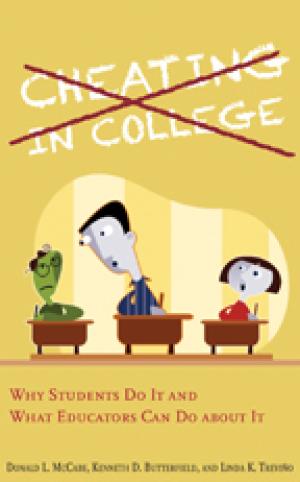
Today's students are tomorrow's leaders, and the college years are a critical period for their development of ethical standards. Cheating in College explores how and why students cheat and what policies, practices, and participation may be useful in promoting academic integrity and reducing cheating. The authors investigate trends over time, including internet-based cheating. They consider personal and situational explanations, such as the culture of groups in which dishonesty is more common (such as business majors) and social settings that support cheating (such as fraternities and sororities). Faculty and administrators are increasing their efforts to promote academic honesty among students. Orientation and training sessions, information on college and university websites, student handbooks that describe codes of conduct, honor codes, and course syllabi all define cheating and establish the consequences. Based on the authors' multiyear, multisite surveys, Cheating in College quantifies and analyzes student cheating to demonstrate why academic integrity is important and to describe the cultural efforts that are effective in restoring it. (From the Publisher)
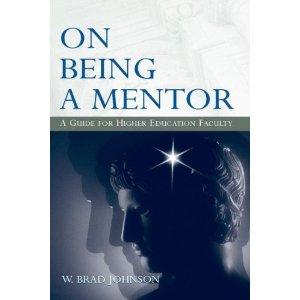
On Being a Mentor is the definitive guide for faculty in higher education who wish to mentor both students and junior faculty. It features strategies, guidelines, best practices, and recommendations for professors who wish to excel in this area. Written in a pithy style, this no-nonsense guide offers straightforward advice about managing problem mentorships and measuring mentorship outcomes. Practical cases studies, vignettes, and step-by-step guidelines illuminate the process of mentoring throughout. Other outstanding features include: *research-based advice on the rules of engagement for mentoring, mentor functions, qualities of good mentors, and methods for forming and managing student-faculty relationships; *summaries of the common mentoring relationship phases and guidance for adhering to ethical principles when serving as a mentor; *guidance about mentoring specific populations, including undergraduate and graduate students, faculty, and protégés who differ from the mentor in terms of sex and race; and *recommendations for department chairs and deans on how to foster an academic culture of mentoring. On Being a Mentor is intended for professors, department chairs, and deans in a variety of educational settings, including colleges, universities, and medical and law schools and is suitable for professors in all fields of study including the sciences, humanities, psychology, education, and management. (From the Publisher)
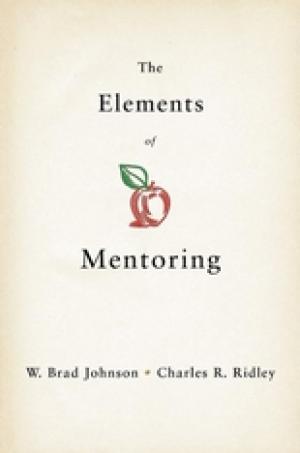
Patterned after Strunk and White's classic The Elements of Style, this new edition concisely summarizes the substantial existing research on the art and science of mentoring. The Elements of Mentoring reduces this wealth of published material on the topic to the sixty-five most important and pithy truths for supervisors in all fields. These explore what excellent mentors do, what makes an excellent mentor, how to set up a successful mentor-protégé relationship, how to work through problems that develop between mentor and protégé, what it means to mentor with integrity, and how to end the relationship when it has run its course. Succinct and comprehensive, this is a must-have for any mentor or mentor-to-be. (From the Publisher)
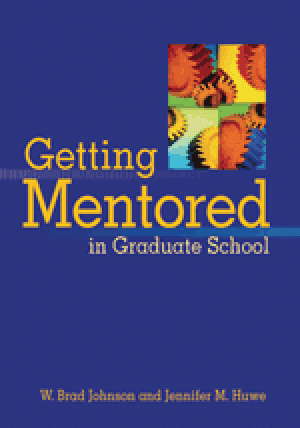
Getting Mentored in Graduate School is the first guide to mentoring relationships written exclusively for graduate students. Research has shown that students who are mentored enjoy many benefits, including better training, greater career success, and a stronger professional identity. Authors Johnson and Huwe draw directly from their own experiences as mentor and protégé to advise students on finding a mentor and maintaining the mentor relationship throughout graduate school. Conversational, accessible, and informative, this book offers practical strategies that can be employed not only by students pursuing mentorships but also by professors seeking to improve their mentoring skills. Johnson and Huwe arm readers with the tools they need to anticipate and prevent common pitfalls and to resolve problems that may arise in mentoring relationships. This book is essential reading for students who want to learn and master the unwritten rules that lead to finding a mentor and getting more from graduate school and your career. (From the Publisher)
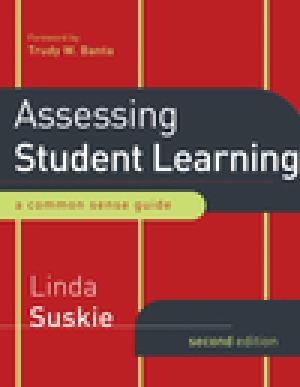
The first edition of Assessing Student Learning has become the standard reference for college faculty and administrators who are charged with the task of assessing student learning within their institutions. The second edition of this landmark book offers the same practical guidance and is designed to meet ever-increasing demands for improvement and accountability. This edition includes expanded coverage of vital assessment topics such as promoting an assessment culture, characteristics of good assessment, audiences for assessment, organizing and coordinating assessment, assessing attitudes and values, setting benchmarks and standards, and using results to inform and improve teaching, learning, planning, and decision making. (From the Publisher)
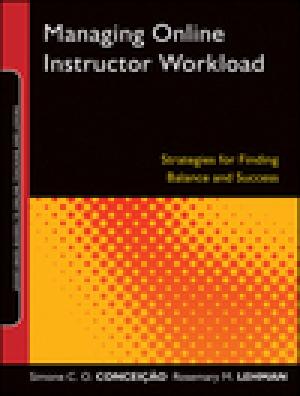
A large number of institutions are now providing online programs, requiring instructors to change the way they think about teaching and master a distinct set of workload management skills. The first book to discuss workload management for online instructors, Managing Online Instructor Workload offers practical strategies, advice, and examples for how to prioritize, balance, and manage an online teaching workload. Based on surveys and interviews, the timely and comprehensive insight in this book is essential for online instructors, instructional designers, faculty developers and others involved in online learning.
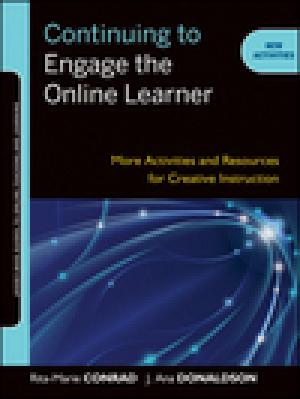
This book includes a definitive model for engaged learning that can be applied in a wide range of on-line learning environments and across age levels.  It also addresses current topics such as engaging in a blended learning environment, social networking, and using related technology tools. Continuing to Engage the Online Learner provides an introduction to the theory of engaged learning and its design, assessment, and management in online and blended learning environments. In addition, the book describes the types of activities that engage the online learner in each phase of engagement and provides 50 new examples of activities. (From the Publisher)
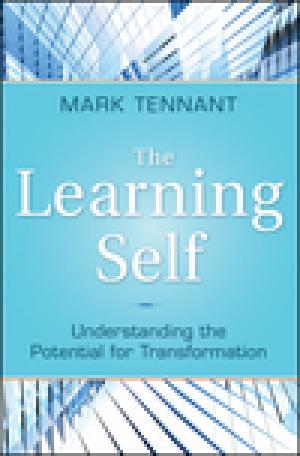
This new book from the award-winning author of Psychology and Adult Learning puts the spotlight on the kind of learning that brings about significant personal change. Tennant explores the techniques, processes, and practices educators can use to promote learning that leads to change and examines assumptions about self and identity, how we are formed, and our capacity for change. Throughout the book, Tennant posits that individuals can be agents in their own self-formation and change by understanding and acting on the circumstances and forces that surround and shape them. Educators, he argues, must be open to different theoretical ideas and practices while simultaneously valuing these practices and viewing them with a critical eye. The book aims to: • promote, among educators and others with an educational dimension to their work, a more critical approach to their learning designs and practices; • equip individuals with a framework for understanding and being agents of their own self-formation and change.
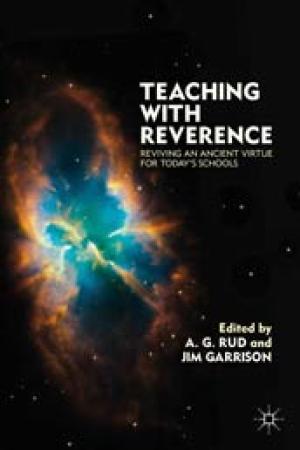
Reverence is a forgotten virtue in teaching and learning. Indeed, it is a largely forgotten virtue in American society. This book argues that there is much more to teaching students than merely imparting knowledge. Good teaching involves forming character, molding destinies, creating an enduring passion for learning, appreciating beauty, caring for others, and much more. In some sense of the word, teaching is a spiritual, although not necessarily a religious, activity. When done well, it cultivates human intimacy and allows teachers to find creative self-expression in classroom community. The essays gathered here examine reverence as a way to understand some of the spiritual dimensions of classroom teaching. (From the Publisher)

A Critical Pedagogy of Embodied Education outlines the pedagogy of activism and the process of learning to become an activist. Based on empirical research conducted in Australia, it explores the embodied learning of activists as they learn to be and become activists. This book, unlike any current publication on social purpose education, explores the differences and similarities between two groups of activists: lifelong activists who have been engaged in campaigns and socials movements over many years - often a lifetime - and the learning of circumstantial activists, those protestors who come to activism due to a series of life events. The book uncovers through multiple case studies the embodied pedagogy of activists who gain knowledge through the practical experience of being in the world of activism. Their learning is often driven by emotional agency and is social, informal, and critically cognitive. Using critical pedagogy as a lens, the book not only expands our understanding of the epistemology of activism, but provides insight into adult education as an embodied practice. (From the Publisher)